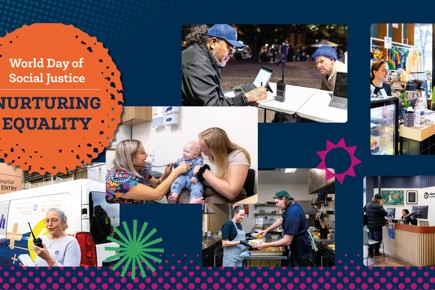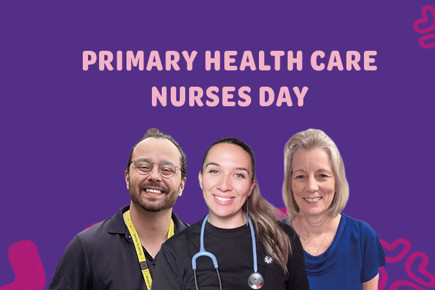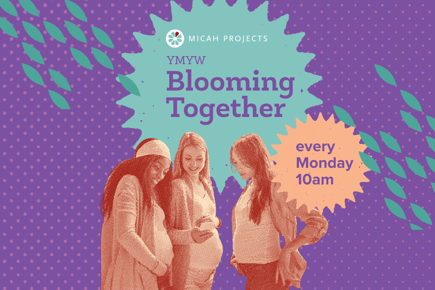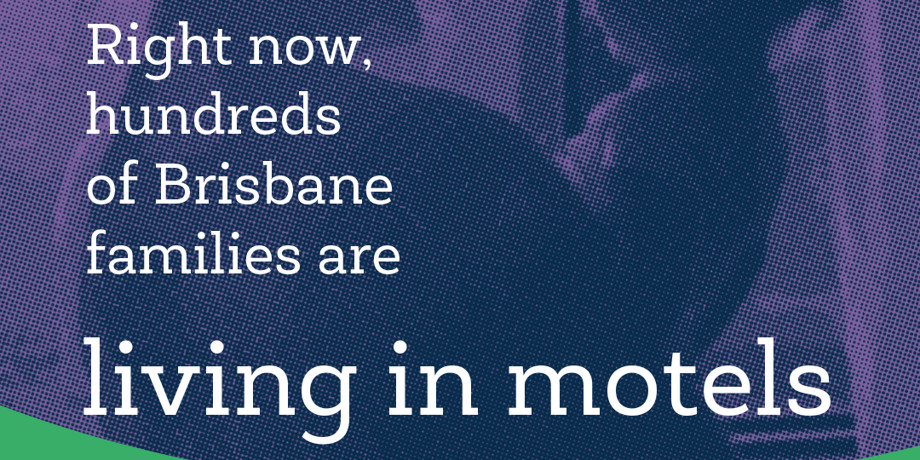In Brisbane, Micah Projects is supporting more than 260 families – including over 500 children – in motels because there’s nowhere else to go.
Family homelessness is often invisible and it’s on the rise. We see parents staying in cars and motels, trying to hold their families together, feeling the stress of everyday living without a permanent home.
Did you know?
- In just 18 months, the number of homeless families in Brisbane has nearly tripled.
- Brisbane families can spend over 12 months living in motels, waiting for permanent housing.
- Most motel rooms have no cooking or laundry facilities -and shelter entire families in a single room.
Why are so many families homeless - and who are they?
Family homelessness is increasing in Brisbane, driven by rising living costs, a severe shortage of affordable housing, and domestic and family violence.
But despite the facts, many people still misunderstand who is affected - and why.
Surveys show that 34% of Australians believe homelessness is caused by substance use, and 28% point to mental illness. In reality, the leading cause is a lack of affordable housing. These myths and stereotypes make it harder for families to access support, and harder for communities to respond with compassion.
The truth is: most families experiencing homelessness are people doing everything they can to stay safe and together.
To better understand the scale and urgency of the issue, a collective of organisations – including Micah Projects – contributes to Brisbane Zero, a shared data dashboard tracking and responding to homelessness across the city. Because when we see the real story, we can be part of the real solution. You can explore the latest figures and progress online.
So why motels?
Motels are a stopgap; a band-aid. They’re not a solution, but they’re often the only option when families are priced out of rentals and social housing waitlists stretch over two years.
Micah Projects doesn’t own or operate motels. We connect families with available crisis accommodation and provide wrap-around support - food, supplies, advocacy, health and social services, and case planning.
What we hear from families
Families tell us about the toll of motel living:
- Children missing school and feeling isolated
- Parents navigating trauma, stigma, and uncertainty
- The stress of living in limbo, without a kitchen, privacy, or stability
- Not having enough space for multiple kids and parents in one room
- Not feeling safe where they sleep
- The difficulty of managing work routines and health
Families want to move out of survival mode. They want a place to call home.
We know that motel accommodation is not an ideal solution, but it’s what we can do while we advocate for broader solutions.
Where your donation goes
We’re raising $23,000 to fund 100 nights of emergency motel accommodation for families in crisis. This goes directly to funding crisis accommodation and support.
It won’t cover it all, but it’ll make a big difference. These funds help us cover the gaps so families can keep a roof overhead.
The government currently funds some motel-based crisis accommodation, but the demand is high, it’s increasing, and it’s not enough.
Some people don’t receive government assistance, so they’re left with nowhere to turn. That’s where we can help.
See more about donations here.
What we’re striving for
Micah Projects is committed to a Housing First approach- because everyone has a right to a safe, permanent home.
A Housing First approach means starting with permanent, stable housing, then wrapping support around people to meet their immediate needs. It’s about giving families a foundation to rebuild from, rather than asking them to prove they’re ready for a home.
Evidence shows this approach restores dignity, strengthens wellbeing, and helps people break free from cycles of homelessness. It’s not just more compassionate -it’s more effective, because when people have a safe place to live, everything else becomes possible. People can feel their own strength come back, their sense of dignity can emerge again, hope is restored and they can begin to look to the future.
We’re advocating for long-term sustainable solutions:
- Investment in social and affordable housing, including supportive housing for families and individuals
- Stronger pathways from crisis to stability – this means systems change
- Trauma-informed support for families and children – more of the work we do to minimise harm and support recovery
What you can do
- Share this with your networks and on social media
- Start a conversation about family homelessness
- Help us raise funds—and raise awareness
Homelessness isn’t just a housing issue. It’s a justice issue. Together, we can make a difference as a community that stands together for justice, equity and safety.
Keep reading
-

World Day of Social Justice : Nurturing Equality News
Today, the United Nations marks World Day of Social Justice, a moment that invites all of us to pause and ask: what does justice really look like in our own community?
Domestic and Family Violence ServicesSocial Enterprise and Community ConnectionHousing and Homelessness ServicesInclusive Health PartnershipsLotus ServicesSupportive HousingSystems Leadership and AdvocacyWellspring ServicesWomen, Children and FamiliesWomen and Girls Health Hub -

Nurse practitioners improving access to primary healthcare News
Access to primary healthcare is a fundamental building block of wellbeing, yet for people experiencing homelessness or unstable housing, it can be one of the hardest things to secure.
Inclusive Health Partnerships -

Blooming Together: New Brisbane group supporting young pregnant women News
Our new community group, Blooming Together, is offering young pregnant and parenting women in Brisbane a welcoming space to connect, share and create.
Wellspring Services -

19th Annual Moonlight Magic Dinner Dance Event
Join us Friday 24 April to enjoy a delicious two-course meal and celebrate community spirit and inclusivity, at our Annual Moonlight Magic Dinner Dance.
Domestic and Family Violence ServicesSocial Enterprise and Community ConnectionHousing and Homelessness ServicesInclusive Health PartnershipsLotus ServicesSupportive HousingSystems Leadership and AdvocacyWellspring ServicesWomen, Children and FamiliesWomen and Girls Health Hub
